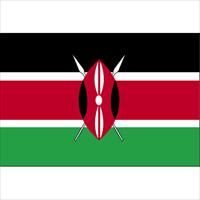KENYA: UN humanitarian envoy winds up visit as mediation talks enter "crucial" week

John Holmes, the UN's Under-Secretary-General for Humanitarian Affairs and Emergency Relief Coordinator, wound up a three-day visit to Kenya on 10 February as African Union-mandated mediation efforts entered what has been described as a "crucial stage".
"We hope the violence will stop, we reinforce the need for accountability for those responsible for that violence, which is why the United Nations is helping not only on the humanitarian side but helping in the political process as far as it can," Holmes said at a news conference on 10 February.
Former UN Secretary-General Kofi Annan is leading the mediation effort to reconcile the government and the opposition with the aim of reaching a political solution to the crisis. On 8 February, Annan said the talks were making progress and that an agreement could be reached imminently.
During his visit, Holmes visited camps for internally displaced persons (IDPs) in western Kenya's Rift Valley Province, to survey the humanitarian situation in areas hardest hit by post-election violence.
"I spent some time in Nakuru and Molo yesterday [9 February] and in some of the sites around Nairobi, Tigoni, the Nairobi Showground and Kirathimo this morning as well," he said. "And I … met … a lot of people in a very sad and tragic and moving psychological state, people from communities who have been driven from their homes and often in scenes of great brutality and danger and stress."
Holmes said the country's humanitarian problem remained "serious", from what he saw and the people he talked to. The Kenya Red Cross Society estimates that at least 1,000 people have been killed and more than 300,000 others displaced since the violence began in late December 2007.
Holmes said: "But also there are probably many more people who have been displaced from their homes, are being displaced from their homes, who are not in camps, who have gone to their ancestral homes, who are living with relatives, who are living with host communities, who are living with neighbours and, therefore, who are not included at the moment in the count of people who are in camps but who are no less in need of physical help, psychological help and all the help we can give."
He said host communities were also affected as their resources were strained.
"We need to have all these factors in mind when we are looking at the response we need for the immediate moment but also for the medium term," he said.
Meanwhile, a fact-finding mission deployed by UN High Commissioner for Human Rights, Louise Arbour, arrived to investigate allegations of grave rights violations in the post-election period.
According to a report carried by UN News, staff from the office of the UN Special Adviser on the Prevention of Genocide are to examine the ethnic dimension of the conflict, as well as the extent to which the ethnic violence was organised.
"They're going out into the field where violence has taken place to see exactly what is going on or has gone on and to give us a picture of whether there has been incitement, by whom and where responsibility lies,” Special Adviser Francis Deng was quoted as saying.
 Back and Next - Back and Next
Back and Next - Back and Next See Also - See Also
See Also - See Also